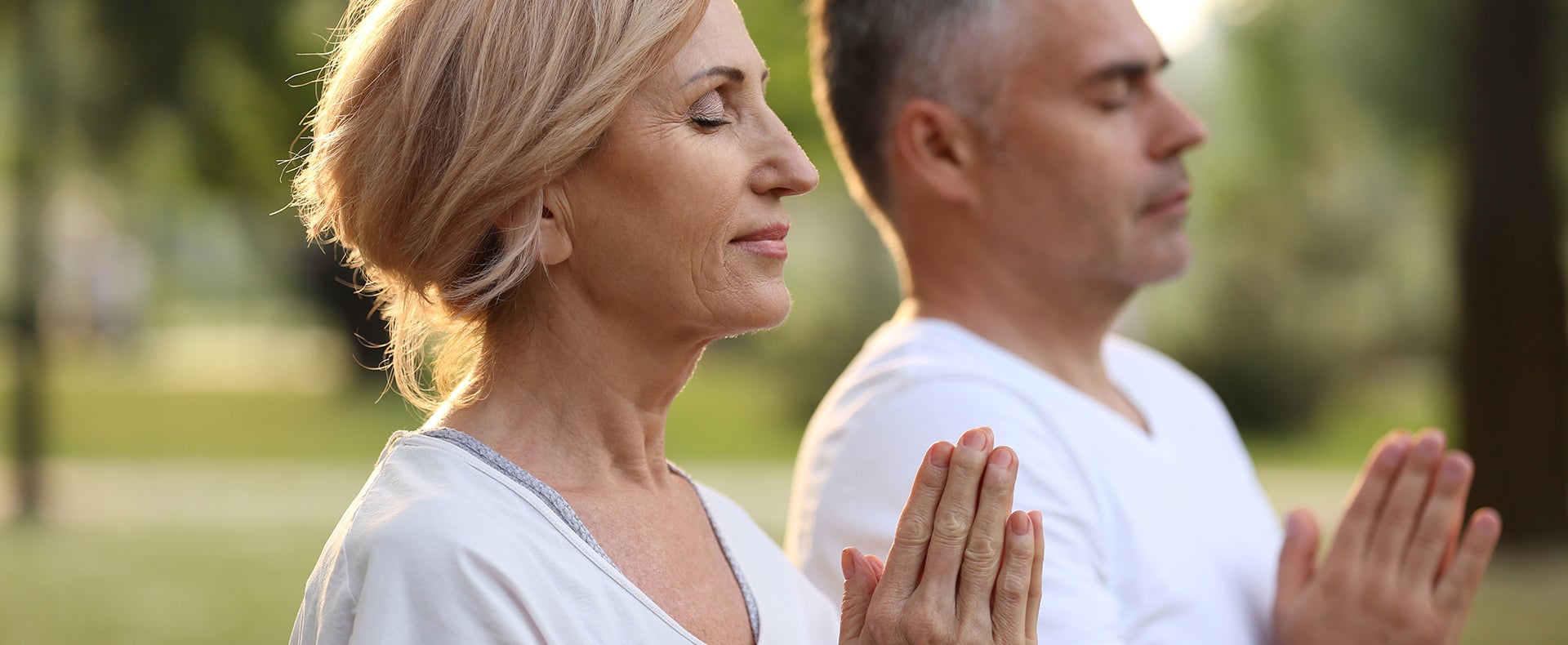A shift in how we view getting older is an important first step. Brian Vaszily founded a group called The Art of Anti-Aging whose mission is “to end the destructive belief that getting older equals going downhill.” They’ve officially redefined “anti-aging” to mean you’re against the destructive myths of aging, and instead advocate for whatever physical, mental, and emotional changes truly can help you and others look your best, feel your best, and live.
This is not just positive thinking. Various studies over the years have identified a strong relationship between negative perceptions about aging and physical frailty. When someone starts thinking they’re old and frail, it leads to a downward spiral effect on their health and they become old and frail. In contrast, a recent study found that the way we think about, talk about, and write about aging may have a direct effect on health. The 2016 study of 4,100 men and women tracked their perceptions and health changes over time.1 For example, adults with negative attitudes toward aging walked slower and had decreased cognitive abilities in follow up two years later compared to adults with positive attitudes, regardless of medications, mood, life circumstances, or other health changes. The study also noted aging perception affected how one health condition affected another. A frailty attitude resulted in multiple health problems and decreased cognition.
“Everyone will grow older and if negative attitudes towards aging are carried throughout life, they can have a detrimental, measurable effect on mental, physical, and cognitive health,” said Deirdre Roberston, PhD., lead researcher for the study at Trinity College Dublin.
Age is a function of both number of years and biological function. You can’t change how many birthdays you’ve had, but you can change what choices you make that affect how your body handles the years we are given. So we do actually have a “birthday age” and a “biological age.” One is a measure of years we’ve lived, and another is a measure of how well our body handles those years.
The immune system plays a huge role in aging: our immune system declines as we biologically grow older. Board-certified neurologist Dr. David Perlmutter has done extensive study of the brain and aging. He explains that the immune system regulates the fundamental mechanism of aging, which is inflammation.2 How well we adapt to challenges to our immune systems holds the key to aging well.

“We’ve got to pay as much attention as possible to keeping our immune systems young because that translates to keeping us young. We can engage in lifestyle choices that can help rejuvenate the immune system,” he encourages. When we embrace the notion that all chronic winding down of our bodies is an immune issue, it enables you to look at lifestyle choices that can make an impact. It is possible to rejuvenate your immune system, be healthier and more resistant to disease and infection, and thus turn back the biological clock.
Perlmutter explains the interplay between the immune system and the brain, and says we have the ability to choose our brain’s destiny based on the choices we make. We can do things now to increase our brain cells. For many years, medical training taught that brain cells could not be regenerated, but the most current brain research has discovered that brain cells can be generated; activating the chemistry of the brain. We can activate chemicals involved in that process. BDNFs (brain-derived neurotrophic factor) stimulate the growth of new brain cells. Perlmutter calls them the “MiracleGro for brain cells.” Some known ways to generate BDNF include aerobic exercise, eating deep water fish, and other things.
Dr. Perlmutter recommends strengthening three basic fundamental things to revitalize your immune system:
- Be intentional about when you eat – He says the timing of our food and periodic fasting is the most powerful thing to rejuvenate the immune system and affect biological age. The process called “hormesis” tells our bodies that conditions are not ideal and the body responds by getting stronger as it responds. When we are in a process of burning body fat, the brain sends signals to the genetic code that rejuvenates the immune system by activating BDNFs. These chemicals stimulate the growth of new brain cells (neurogenesis) and help brain cells build connections (synaptogenesis) which are fundamental for memory.

- Get quality sleep – We should spend about a third of our lives sleeping, an indicator of how important it is to our health. Good sleep balances the immune system and can bring inflammation under control. Lack of sleep compromises the immune system and invites inflammation and other problems. It is important to get enough restorative, quality sleep to maintain a strong immune system. He recommends using a wearable device to have the facts about how much REM sleep you’re getting so that you can determine how you are sleeping and find sleep solutions such as sleeping in a dark, cool room, bedtime routines, and other small changes that make a big impact. Sleep also affects decision making. Lack of sleep makes us fall back on our amygdala where impulse and self-protection reigns. Sleep deprivation activates the amygdala by 60% more. Well rested brains can engage the prefrontal cortex, where complex information is processed.

- Exercise – Find your “sweet spot,” the amount of aerobic exercise that is just right for you. He recommends a basic routine, starting with 20 minutes a day, and try to get a heart rate goal with this equation: 180 beats per minute – your age = ideal heart rate.
- Practice a sense of awe – Find things that give you a sense of awe and inspire wonder; in nature, the arts, movies, books or concerts. It increases our sense of connectedness to others and that we are part of something bigger than ourselves. It is hugely valuable to health and will keep you feeling young longer. Research has shown that when humans experience awe, parts of the brain light up similarly to when meditating. He calls this the “homerun” that we have the ability to choose our brain’s destiny based on our choices.
Seeing aging as a new stage of strength and possibility empowers you to make choices at any age about how you are going to go through the transitions of aging. We encourage you to learn more about this perspective. Request to join The Art of Anti-Aging’s group on Facebook, or purchase the content from their recent Younger, Longer Summit to hear much more about what you can do to help make the most of your health and well-being as you age.



